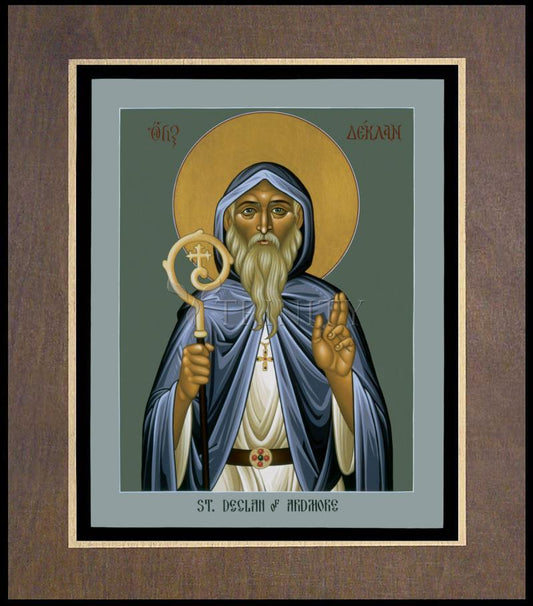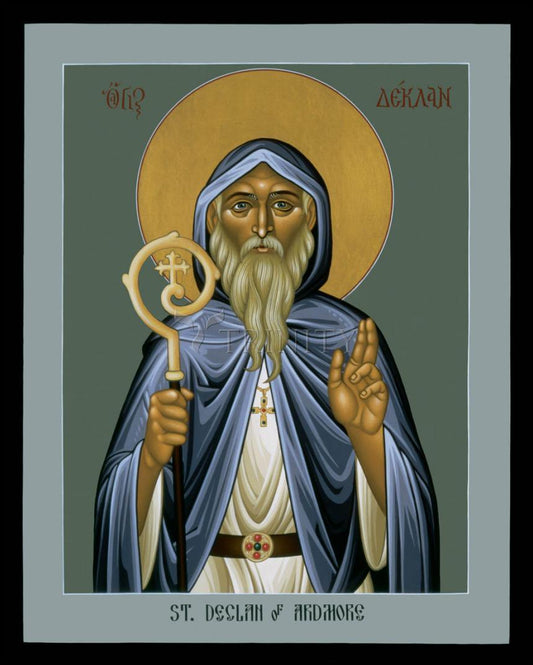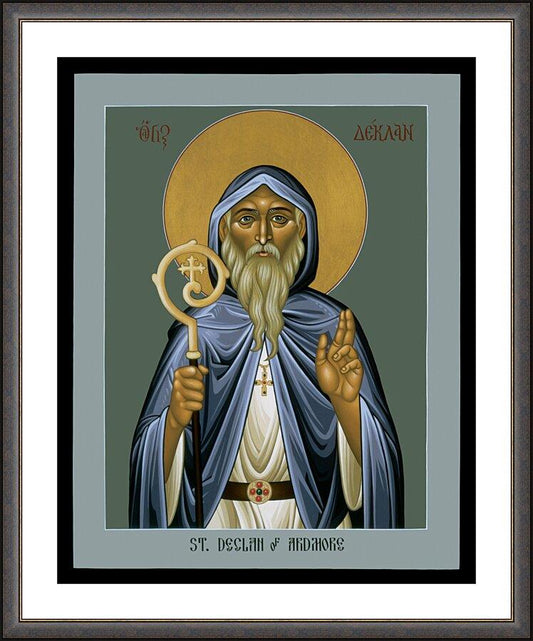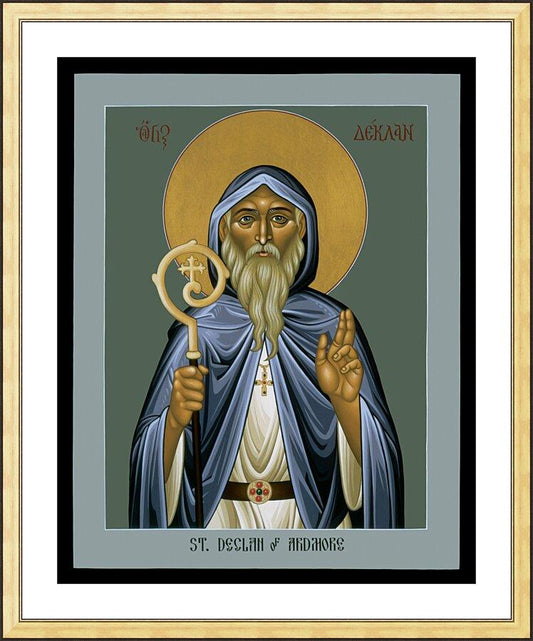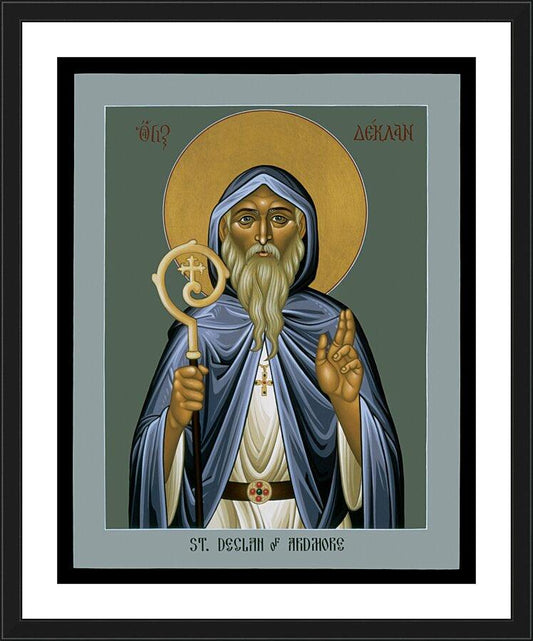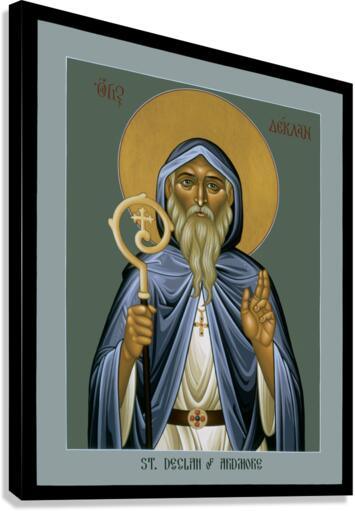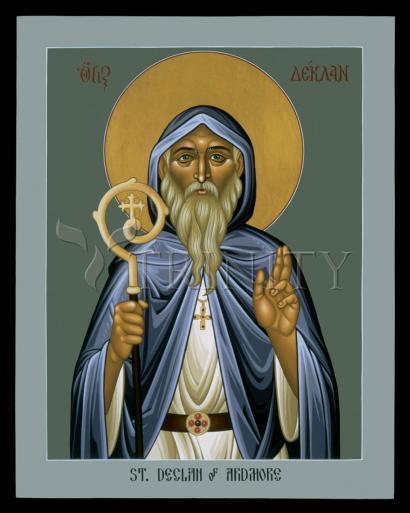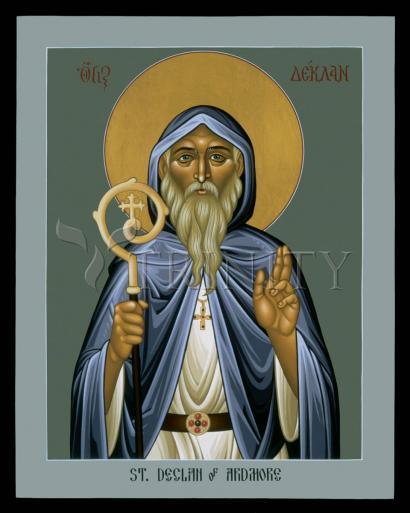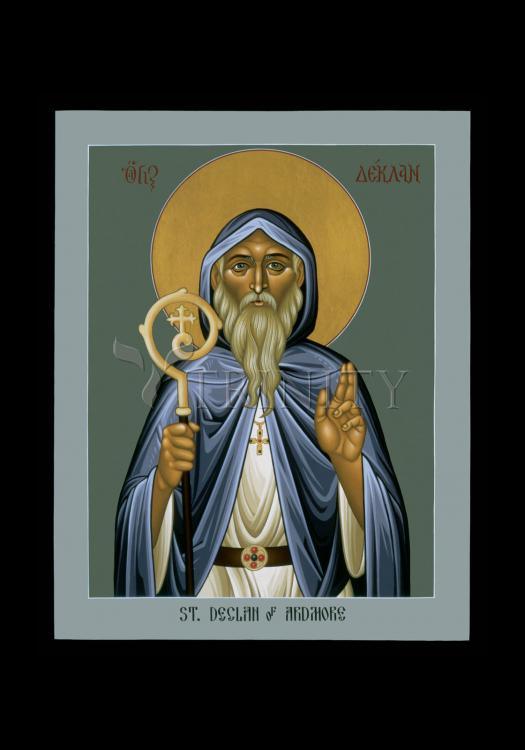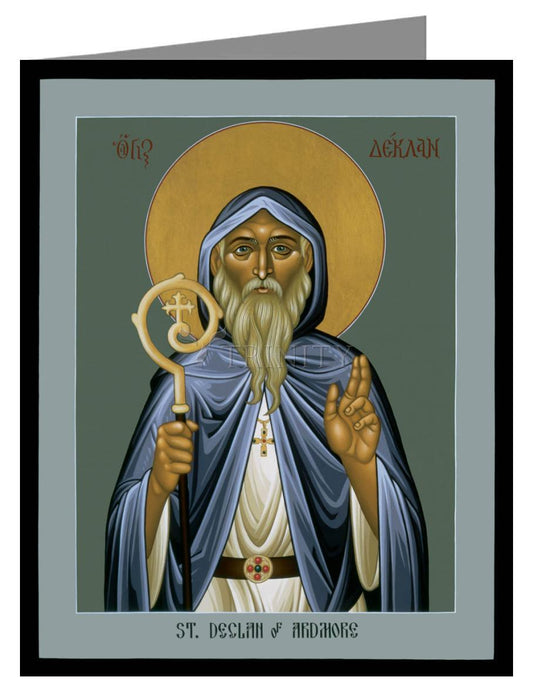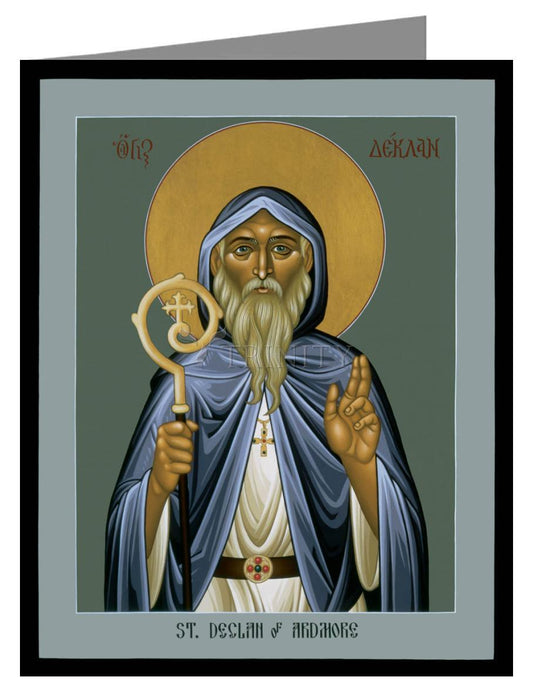Collection: St. Declan of Ardmore

-
Sale
Wood Plaque Premium
Regular price From $99.95 USDRegular priceUnit price per$111.06 USDSale price From $99.95 USDSale -
Sale
Wood Plaque
Regular price From $34.95 USDRegular priceUnit price per$38.83 USDSale price From $34.95 USDSale -
Sale
Wall Frame Espresso
Regular price From $109.95 USDRegular priceUnit price per$122.17 USDSale price From $109.95 USDSale -
Sale
Wall Frame Gold
Regular price From $109.95 USDRegular priceUnit price per$122.17 USDSale price From $109.95 USDSale -
Sale
Wall Frame Black
Regular price From $109.95 USDRegular priceUnit price per$122.17 USDSale price From $109.95 USDSale -
Sale
Canvas Print
Regular price From $84.95 USDRegular priceUnit price per$94.39 USDSale price From $84.95 USDSale -
Sale
Metal Print
Regular price From $94.95 USDRegular priceUnit price per$105.50 USDSale price From $94.95 USDSale -
Sale
Acrylic Print
Regular price From $94.95 USDRegular priceUnit price per$105.50 USDSale price From $94.95 USDSale -
Sale
Giclée Print
Regular price From $19.95 USDRegular priceUnit price per$22.17 USDSale price From $19.95 USDSale -
Custom Text Note Card
Regular price From $300.00 USDRegular priceUnit price per$333.33 USDSale price From $300.00 USDSale
ARTIST: Br. Robert Lentz, OFM
ARTWORK NARRATIVE:
Little is known of St. Declan, except that he was a prince of the Decius tribe of Celts in Ireland. Years before St. Patrick arrived, he was consecrated bishop of Ardmore in Waterford. Many miracles have been ascribed to him. He is buried in a tiny oratory in Ardmore, near which is his ancient well.
The Celtic peoples found much in Christianity, which reminded them of their native spirituality, and adopted the new religion with relative ease. Their local church, however, was considerably different than the church in Rome in many aspects. Rome struggled for centuries to subdue the Celtic church, finally succeeding with the Norman Conquest of Ireland in the 11th and 12th centuries. St. Declan harkens back to those earliest days when the Irish had their own truly native expression of Christianity.
His feast day is July 24.
- Art Collection:
-
Saints & Angels
- Lentz collection:
-
Saints, Martyrs and Holy People
On the night of Declan's birth a wondrous sign was revealed to all, that is to the people who were in the neighborhood of the birthplace; this was a ball of fire which was seen blazing on summit of the house in which the child lay, until it reached up to heaven and down again, and it was surrounded by a multitude of angels. It assumed the shape of a ladder such as the Patriarch, Jacob saw [Genesis 28:12]. The persons who saw and heard these things wondered at them. They did not know (for the true faith had not yet been preached to them or in this region) that it was God who (thus) manifested His wondrous power (works) in the infant, His chosen child. Upon the foregoing manifestation a certain true Christian, Colman, at that time a priest and afterwards a holy bishop, came, rejoicing greatly and filled with the spirit of prophecy, to the place where Declan was; he preached the faith of Christ to the parents and made known to them that the child was full of the grace of God. He moreover revealed to them the height of glory and honor to which the infant should attain before God and men, and it was revealed to him that he should spend his life in sanctity and devotion.
Through the grace of God, these, i.e. Erc and Deithin, believed in God and Colman, and they delivered the child for baptism to Colman who baptized him thereupon, giving him the name of Declan. When, in the presence of all, he had administered Baptism, Colman spoke this prophecy concerning the infant "Truly, beloved child and lord you will be in heaven and on earth most high and holy, and your good deeds, fame, and sanctity will fill all (the four quarters of) Ireland and you will convert your own nation and the Decies from paganism to Christianity. On that account I bind myself to you by the tie of brotherhood and I commend myself to your sanctity."
Colman thereupon returned to his own abode; he commanded that Declan should be brought up with due care, that he should be well trained, and be set to study at the age of seven years if there could be found in his neighborhood a competent Christian scholar to undertake his tuition. Even at the period of his baptism grace and surpassing charity manifested themselves in the countenance of Declan so that it was understood of all that great should be the goodness and the spiritual charm of his mature age. When Dobhran had heard and seen these things concerning his kinsman Erc he requested the latter and Deithin to give him the child to foster, and with this request Erc complied. The name of the locality was "Dobhran's Place" at that time, but since then it has been "Declan's Place."
Dobhran presented the homestead to Declan and removed his own dwelling thence to another place. In after years, when Declan had become a bishop, he erected there a celebrated cell in honor of God, and this is the situation of the cell in question, in the southern part of the Decies, on the east side of Magh Sgiath and not far from the city of Mochuda i.e. Lismore. For the space of seven years Declan was fostered with great care by Dobhran (his father's brother) and was much loved by him. God wrought many striking miracles through Declan's instrumentality during those years. By aid of the Holy Spirit dwelling in him, discreet Christian man that he was, he avoided every fault and every unlawful desire during that time.
On the completion of seven years Declan was taken from his parents and friends and fosterers to be sent to study as Colman had ordained. It was to Dioma they sent him, a certain devout man perfect in the faith, who had come at that time by God's design into Ireland having spent a long period abroad in acquiring learning. Dioma built in that place a small cell wherein he might instruct Declan and dwell himself. There was given him also, to instruct, together with Declan, another child, Cairbre Mac Colmain, who became afterwards a holy learned bishop. Both these were for a considerable period pursuing their studies together.
There were seven men dwelling in Magh Sgiath, who frequently saw the fiery globe which it has been already told they first beheld at the time of Declan's birth. It happened by the Grace of God that they were the first persons to reveal and describe that lightning. These seven came to the place where Declan abode and took him for their director and master. They made known publicly in the presence of all that, later on, he should be a bishop and they spoke prophetically: "The day, O beloved child and servant of God, will come when we shall commit ourselves and our lands to thee." And it fell out thus (as they foretold), for, upon believing, they were baptized and became wise, devout and attentive and erected seven churches in honor of God around Magh Sgiath.
Declan remained a long time with Dioma, the holy man we have named, and acquired science and sanctity and diversity of learning and doctrine, and he was prudent, mild, and capable so that many who knew his nobility of blood came when they had heard of the fullness of his sanctity and grace. Moreover they submitted themselves to him and accepted his religious rule. Declan judged it proper that he should visit Rome to study discipline and ecclesiastical system, to secure for himself esteem and approbation thence, and obtain authority to preach to the Irish people and to bring back with him the rules of Rome as these obtained in Rome itself. He set out with his followers and he tarried not till he arrived in Rome where they remained some time.
At the same period there was a holy bishop, i.e. Ailbe, who had been in Rome for a number of years before this and was in the household of Pope Hilary by whom he had been made a bishop. When Declan with his disciples arrived in Rome Ailbe received him with great affection and gladness and he bore testimony before the Roman people to his sanctity of life and nobility of blood. Declan therefore received marks of honor and sincere affection from the people and clergy of Rome when they came to understand how worthy he was, for he was comely, of good appearance, humble in act, sweet in speech, prudent in counsel, frank in conversation, virtuous in mien, generous in gifts, holy in life and resplendent in miracles.
When Declan had spent a considerable time in Rome he was ordained a bishop by the Pope, who gave him church-books and rules and orders and sent him to Ireland that he might preach there. Having bidden farewell to the Pope and received the latter's blessing Declan commenced his journey to Ireland. Many Romans followed him to Ireland to perform their pilgrimage and to spend their lives there under the yoke and rule of Bishop Declan, and amongst those who accompanied him was Runan, son of the king of Rome; he was dear to Declan.
On the road through Italy Bishop Declan and Patrick met. Patrick was not a bishop at that time, though he was (made a bishop) subsequently by Pope Celestinus, who sent him to preach to the Irish. Patrick was truly chief bishop of the Irish island. They bade farewell to one another and they made a league and bond of mutual fraternity and kissed in token of peace. They departed thereupon each on his own journey, Declan to Ireland and Patrick to Rome.
Declan was beginning mass one day in a church which lay in his road, when there was sent him from heaven a little black bell, which came in through the window of the church and remained on the altar before Declan. Declan greatly rejoiced and gave thanks and glory to Christ on account of it, and it filled him with much courage to combat the error and false teaching of heathendom. He gave the bell for safe keeping and carriage, to Runan aforesaid, i.e. son of the king of Rome, and this is its name in Ireland, "The Duibhin Declain," and it is from its color it derives its name, for its color is black. There were manifested, by grace of God and Declan's merits, many miracles through its agency and it is still preserved in Declan's church.
—Excerpts from the Life of St. Declan of Ardmore Translated from the Irish
Born: 5th century at Desi, Waterford, Ireland
Canonized: Pre-Congregation

